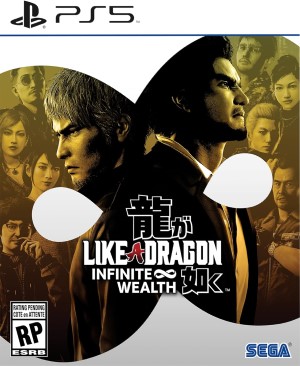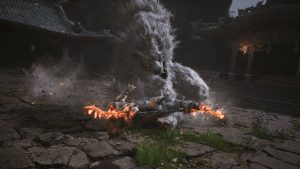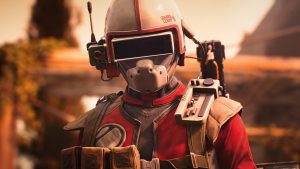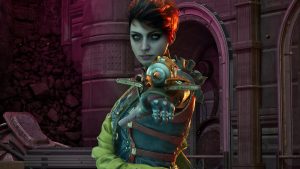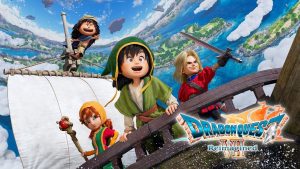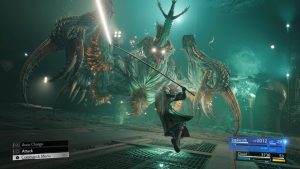
With Yakuza: Like a Dragon some years ago, Sega and RGG Studio’s long-running crime drama action franchise was reborn as a turn based JRPG. It was a symbiotic relationship, in fact – Yakuza: Like a Dragon felt as energized by the switch to RPG trappings, as the well-trodden JRPG genre felt revitalized by Like a Dragon’s spins and takes on long-standing genre tropes and conventions. Combined with an incredible new protagonist, a compelling story, a great new setting and location, as well as the series’ regular charm and sincerity, and Yakuza: Like a Dragon was a hit – the biggest one in the franchise’s history so far.
So, it’s no wonder that the follow up Like a Dragon: Infinite Wealth (I’m really not going to get into the minor nomenclature tragedy that has been the Yakuza/Like a Dragon series in the west in this review, but yeesh) doubles down on Yakuza: Like a Dragon in every way possible. Infinite Wealth is more of everything that was beloved about the previous game – we get more of the protagonist Ichiban, we get to see him starting from scratch with a whole new ragtag group all over again, we once more switch locations, this time to Hawaii (the first international outing in series history!).
You have the return of similarly goofy characters, and surprisingly poignant and heart-warming side quests. The turn-based battles return, the RPG systems and mechanics like the job system return, the social sim elements return, even mini games like the legally distinct Pokemon come, Sujimon, returns (and it’s been expanded even more this time around). You get the requisite improvements to a lot of the shortcomings of the previous game, including some mechanical and QoL improvements to how battles work, better integration of the social and combat systems, improvements to how things like bonds and relationships work, and better incentives for engaging with the job systems (including tying them in better with the social sim side of things). Overall, there are a lot of improvements, big and small, that you’d expect, to go along with the new helpings of all the things you may have loved from the first game as well.
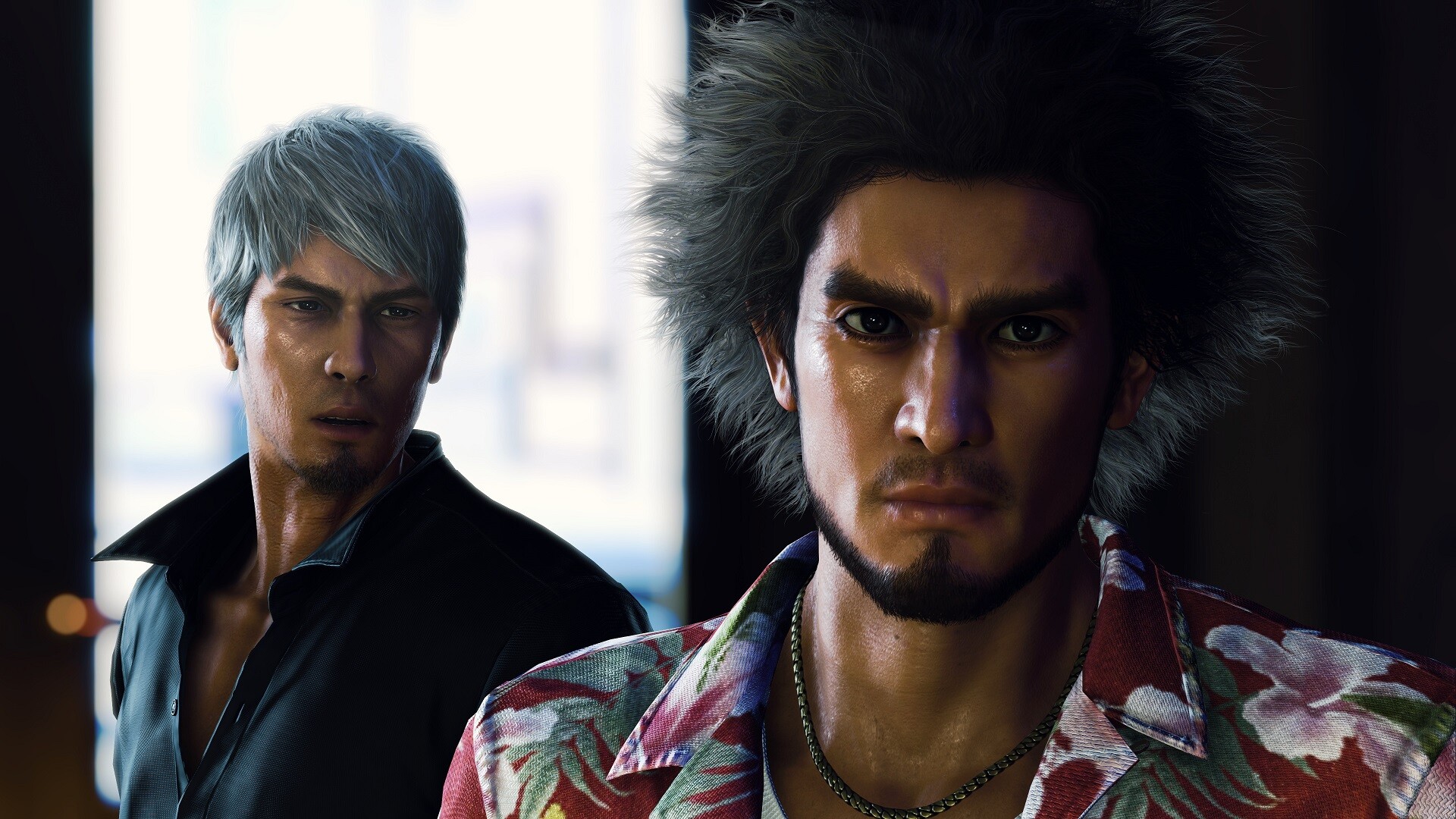
"Infinite Wealth is a concentrated new dose of the winning formula that made Yakuza: Like a Dragon tick so well for so many."
So yes, Infinite Wealth is a concentrated new dose of the winning formula that made Yakuza: Like a Dragon tick so well for so many. But it is actually two stories – it is the continuation of the story of Ichiban Kasuga, the lovable dork who inherited the mantle of series protagonist in Yakuza: Like a Dragon, and instantly won the hearts of longtime fans and newcomers alike. And it is also the conclusion to the story of Kazuma Kiryu, the iconic, legendary protagonist of the Yakuza franchise for the bulk of the franchise, who is now nearing the end of his very long, very storied career – in more ways than one.
Getting into details about Infinite Wealth’s plot would not only be inadvisable due to the potential for massive spoilers, but it would also be missing the point. Like with all games in the series, it starts out as relatively smaller scale in stakes and motivations, but soon escalates and spirals into being a much broader conspiracy involving multiple legal and extra-legal individuals and organizations with conflicting interests, and you smack dab in the middle of it all. Through this all, there are actually a fair few contrivances in the story that it takes to get to where it wants to be. And to be fair, this is true of the franchise as a whole, you can’t really point to any story in the series that doesn’t require the player to buy into leaps of logic for their narratives to work – but it does feel more noticeable in Infinite Wealth, because it happens more often, with larger, more critical plot points, and often stands in sharp juxtaposition to how generally well-written the rest of the game seems to be.
But as I said, focusing on the details is really missing the point. The Yakuza games have never really been concerned with having logically consistent or even coherent plots – more than anything, they rely on their thumbing, and their character payoffs, and that’s what gives these stories the resonance that they have with so many people. And Infinite Wealth, much like its predecessor, and even last year’s Like a Dragon Gaiden: The Man Who Erased His Name (sigh), is a masterwork at delivering on emotional character and thematic payoffs. The story here leads to some fantastic, incredibly charged moments for both of its protagonists, and whether you’re a newcomer who just got on the ride with Ichiban’s first adventure, or a long time veteran who has been following Kiryu from his greenhorn days, there will be some great tearjerker moments, long in the making, that will tug at the heartstrings. Much like all the best games in the series, Infinite Wealth has a legendarily great final act, at least in terms of emotional payoffs – and that alone can compensate for a lot of the lapses in storytelling elsewhere.
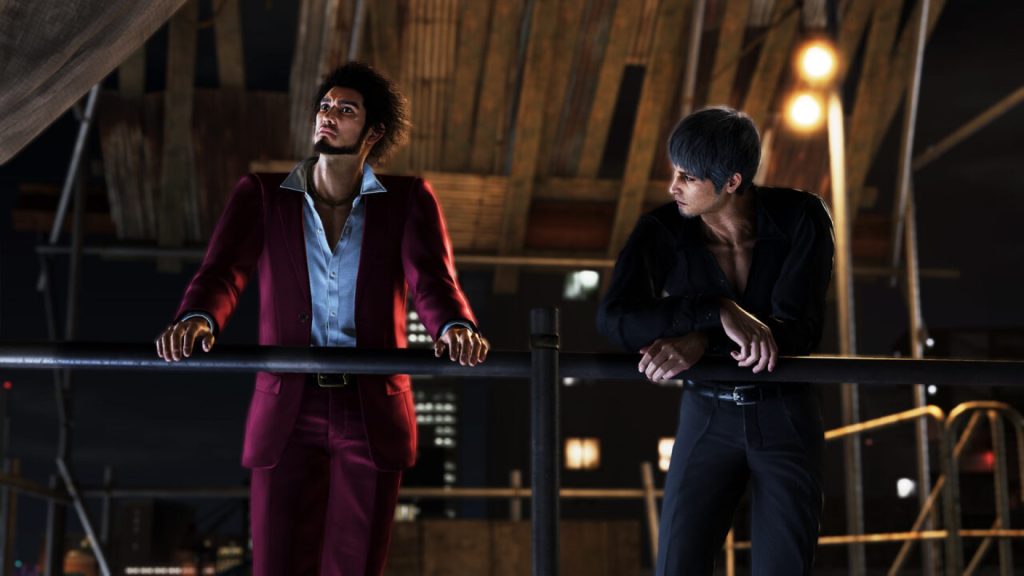
"Infinite Wealth authentically recreates Hawaii’s architecture and streets and layouts and wildlife and shrubbery, albeit with a tourist’s wondrous eye, and it’s great just walking around the map, taking the ambience in."
Unlike the story, however, the new location has no caveats attached to it, and is an out and out win. Hawaii was an inspired choice for a new map. While this isn’t the first seaside/coastal location the franchise has had, it is certainly the biggest, the most realized, and the most fleshed out. The map here is gigantic, definitely the largest map in the series, and it is packed with a unique aesthetic and distinct character all of its own that instantly sets its sunny locales apart from the Japanese urban neighbourhoods the franchise has been largely confined to in the past. Infinite Wealth authentically recreates Hawaii’s architecture and streets and layouts and wildlife and shrubbery, albeit with a tourist’s wondrous eye, and it’s great just walking around the map, taking the ambience in. Of course, being in Hawaii does lead to some hilarity where everyone Ichiban encounters magically and conveniently knows and understands Japanese, while they themselves only seem to know English, which does lead to some ludonarrative dissonance, particularly when the game itself makes Ichiban’s inability to communicate with the locals a plot point early on – but again, no point focusing on the details.
Naturally, given the size of the map, simply walking across can be dauntingly time-consuming, and thankfully, RGG Studios have included multiple fun ways of conveyance, from a fun Segway to zip around town in, to streetcars (er, trolleys) that you can get on to travel pre-determined routes. Segways give you more control over exactly where you want to get, of course, and still leave you open to random battles. On the other hand, trolleys not only give you a potential better look at town but can also lead to unique conversations and bonding members with your party members when you are riding them, apart from also including some mini games unique to them (including a great Pokemon Snap style photography title).
The map is filled with all sorts of content, too – it’s packed to the brim with random battles, collectibles and treasures, fun conversations and party chatter to increase your bonds with your party members, a lot of mini games, and also a lot of side quests, almost every single one of them as high caliber as the series is usually known for – meaning, in simple terms, that they rank as some of the best side quests in any game, period.
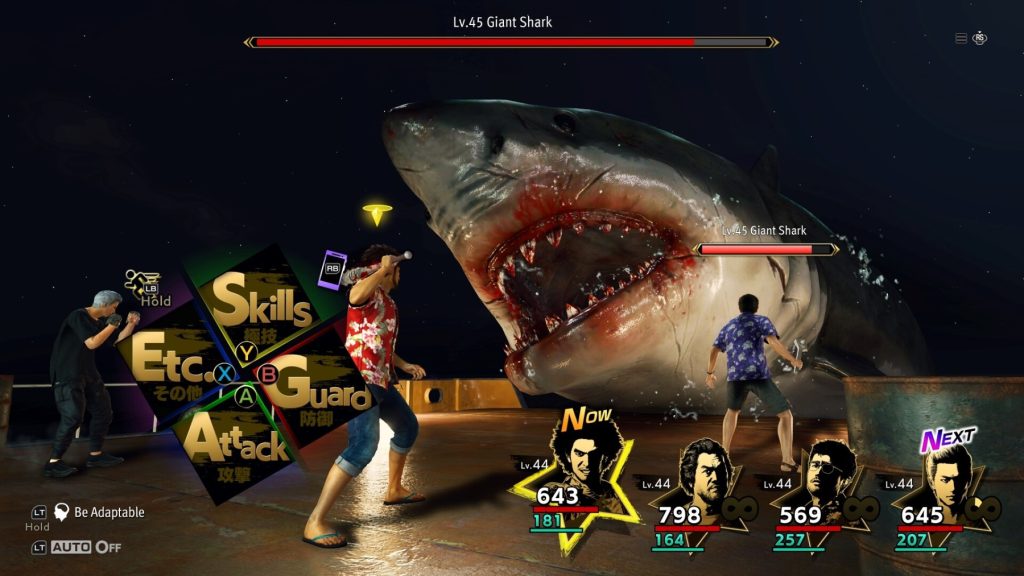
"There are a lot of side quests, almost every single one of them as high caliber as the series is usually known for – meaning, in simple terms, that they rank as some of the best side quests in any game, period. "
Infinite Wealth also benefits from a much stronger cast of primary and playable characters than the previous game. While Like a Dragon had some great characters – Ichiban, whom I have already gushed over numerous times in this review, was a standout, but Ryo Aoki, the villain, is a sharply compelling character, as is Ichiban’s mentor Arakawa – on the whole, the cast felt flat. Not only did most of the playable characters not feel too well integrated into the main story (with there often being only the flimsiest explanation for why they were tagging along with an ex-con homeless bum to begin with), their own stories themselves weren’t too great. The characters felt boring a lot of the time, though some, such as Zhao, were more interesting than the others.
Infinite Wealth does this better. The characters are all better integrated into the main plot line, their individual arcs and conflicts feel better and more interesting this time around (though of course, some are better than others, as you would expect), there are a lot more characters this time around (leading to some really fun interactions and banter), and Infinite Wealth also rectifies one of Like a Dragon’s biggest oversights with its cast of characters by having more than one major female playable character in the story (the secret character Eri notwithstanding). The cast is still predominantly male, yes, but there are a lot more women this time around, and there are some improvements in how they have been written versus in the previous game as well.
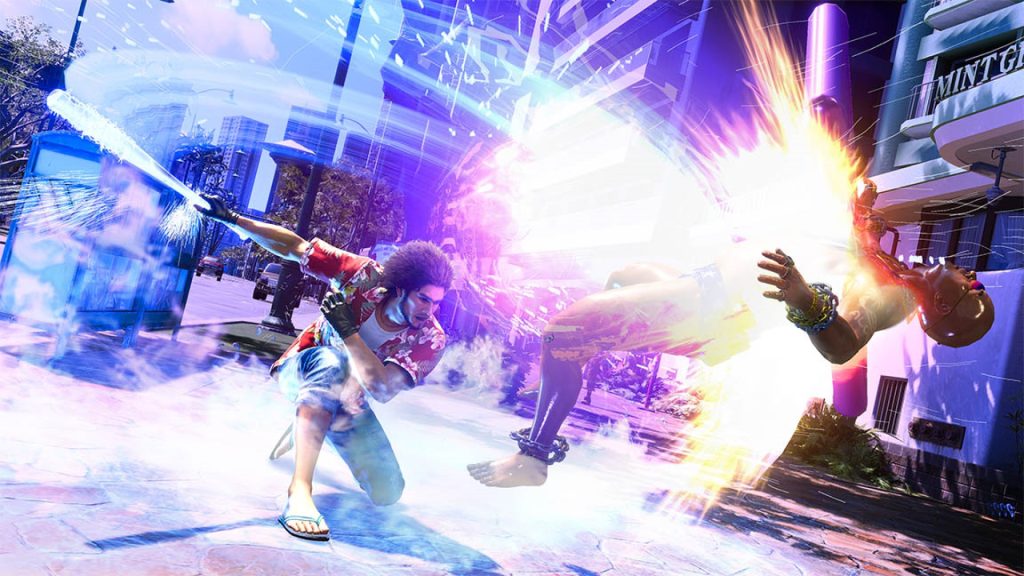
"Infinite Wealth also benefits from a much stronger cast of primary and playable characters than the previous game. "
There do remain some perplexing residual choices in how the party members are handled from the previous game, however. In the previous game, for example, whenever Ichiban got into a side quest or a mini-game, the party members would just… not be there. They weren’t in any of the cutscenes, and they wouldn’t even be acknowledged. The side quests were written only with Ichiban in mind (with some exceptions). At the time, this was easy enough to rationalize – Like a Dragon famously made the switch to a party-based JRPG very late in development, and it was fairly simple to understand why party members weren’t better integrated into the side quests as a result. But Infinite Wealth has no such problems – it was designed as a party-based JRPG from the beginning, with full awareness of that in mind. And yet, it still continues to completely ignore party members in side quests, except for a few ones which acknowledge the ones that can be used in that quest’s story. At this point, it is clear that this is a conscious decision that RGG Studios has made to handle the party and side quests this way, rather than it being borne out of any time or resource limitation. And that’s… fine. It’s not really an issue, particularly because, as I mentioned, the side quests are independently great, and the party members are independently far better done this time around. But it is a curious choice that contributes to that sense of ludonarrative dissonance I mentioned earlier, at least initially, until you make your peace with it.
Improvements made elsewhere are a lot more thorough and consistent – battles, as mentioned, have seen a huge glow-up, with more QoL features, the ability to better move and line up your attacks, more collaboration between party members in the form of follow up attacks and special tag-team attacks, an easy grinding method built in with an auto-battle feature for lower leveled enemies and trash mobs, and jobs and abilities that are just a whole lot more interesting this time around. Battles also tie into Ichiban’s social stats and social links with other characters a lot better this time around (for example, the closer you get to a party member, the more they help out with follow up and team up attacks in battle, and the more your social stats are levered up, the more effective certain corresponding abilities in battle can be).
Infinite Wealth is a staggeringly massive game – it’s so big that in the entire time I’ve been talking about it, there are entire major systems and features I haven’t even alluded to, let alone come close to actually getting into. For example, other than the full-fledged Pokemon Snap and Pokemon battling mini games that I previously mentioned being built-into Infinite Wealth, there is also a full-fledged Crazy Taxi inspired food delivery mini game, and an alarmingly full featured and frighteningly addictive (to the point that it could have been its own independent release) Animal Crossing mini game, one which it is easy to literally lose dozens of hours in, all while ignoring the urgency of the main storyline. The game also just does a much better job of incentivizing you actually engaging with all the mini games, activities, systems, and tasks that it comes packed with than most previous games in the series – you get better rewards, you can unlock more party moments, they are an easy way to make money in the game’s otherwise stingy economy, they lead to some great party banter and bonding moments, and they also sometimes simply serve to reinforce the game’s setting. There’s just a whole lot going on in Infinite Wealth. It comes with an absurd amount of side activities, and numerous of them could stand to be their own standalone releases, should RGG Studios have the desire.
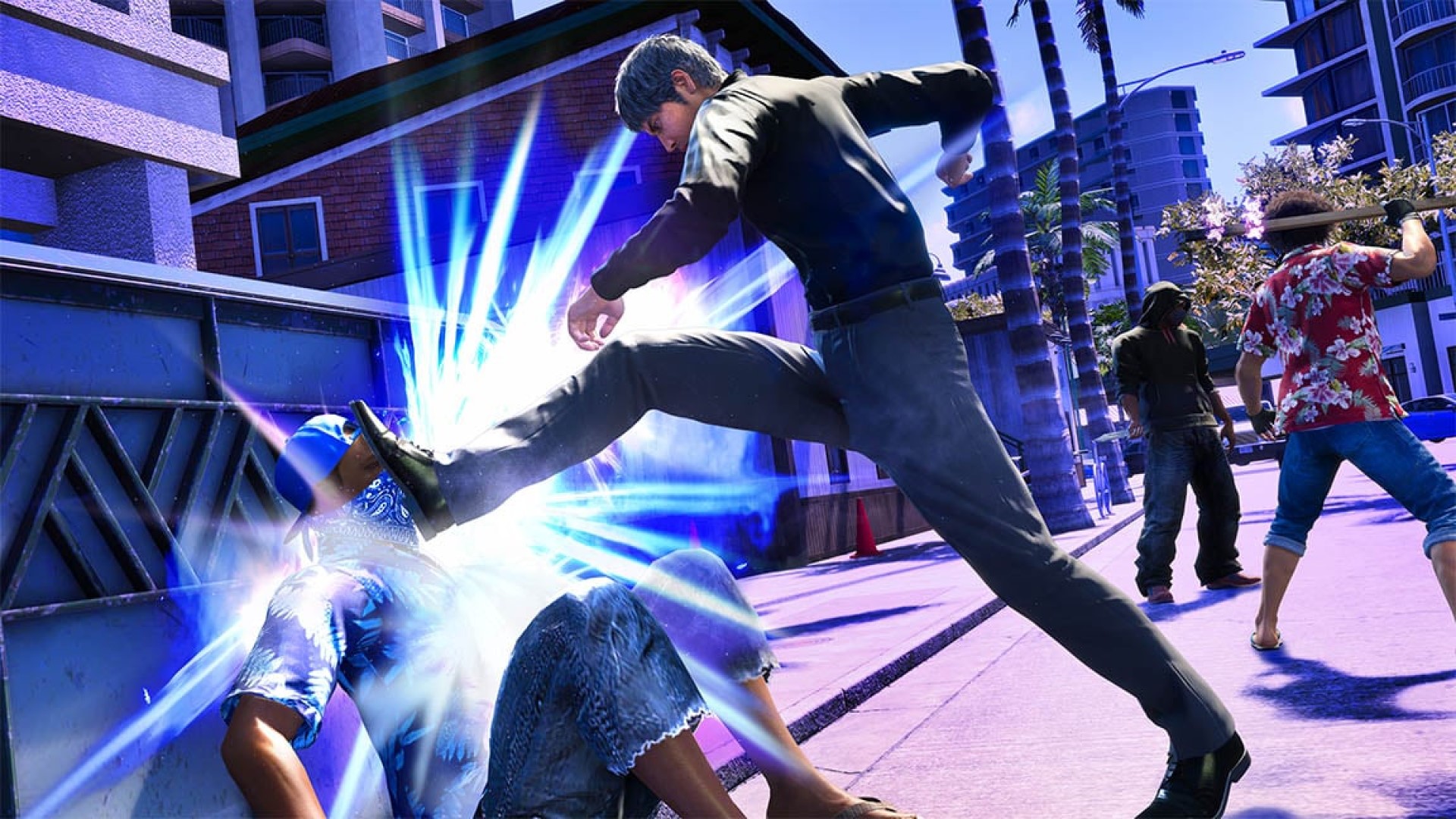
"Kiryu as a character has a very distinct voice – even if you’ve never heard him speak before, you instantly have an idea of what he should sound like with one look at him. YongYea’s voice simply doesn’t fit. It’s a jarring issue that I think players who choose to play in English will have to spend some time coming to terms with."
Infinite Wealth is the first mainline game in the series to get a simultaneous worldwide release (though not the first – Lost Judgment, Like a Dragon Ishin, and Like a Dragon Gaiden: The Man Who Erased His Name, seriously, what the hell Sega, all beat it to the punch). This is, obviously, great news for a franchise that once not only saw international releases belated by multiple years, but at one point was running the risk of not getting global releases at all. However, it has led to some very small errors in localization – for example, I often ran into subtitles missing punctuation, or maybe entire words, or having some fairly noticeable typo. On the whole, this happens very infrequently – and in a game of this size, it represents such a minuscule fraction of the overall whole that it’s really hard to hold this against it – but it is something to keep in mind.
The bigger controversy with the localization involves the dub. In general, the voice performances in Infinite Wealth are incredibly high quality, in Japanese and in English – once more, this is right in line with Like a Dragon, so it should come as a surprise to no one. However, there is one exception – the main character Kiryu, voiced by YongYea. YongYea has put in a solid performance that in itself isn’t really too bad, though it is the obvious weak link compared to how stellar the rest of the English cast’s performances are. It isn’t great, and YongYea’s obvious inexperience with voice performances compared to the rest of the cast does come through, but it’s fine, it’s not bad. The issue, however, is that the voice is entirely mismatched with the character of Kiryu himself. Kiryu as a character has a very distinct voice – even if you’ve never heard him speak before, you instantly have an idea of what he should sound like with one look at him. YongYea’s voice simply doesn’t fit. It’s a jarring issue that I think players who choose to play in English will have to spend some time coming to terms with (thankfully, the Japanese voice track has no such issues).
"Like a Dragon: Infinite Wealth represents, in many ways, the culmination of RGG Studios’ entire journey as a developer so far. It embodies all of their various strengths, polished and developed to their logical zenith, while it also represents their best attempt at addressing most of their traditional weaknesses."
Other than the foibles with localization, however, Infinite Wealth feels surprisingly polished and high-budget, especially for the series. Given how big it is, and given how much there is in it, and how different and fleshed out it all is, you would naturally expect jank or polish in at least the ancillary activities, and even assume that is acceptable – that is, after all, how things are in most other games with varied content and side-activities. But it all feels thoroughly polished and well-made here, in spite of how deep and how different it all tends to get. The higher budget also shows in a generally higher standard of production and storytelling compared to previous games, which only helps the aforementioned strong emotional beats land that much better.
Like a Dragon: Infinite Wealth represents, in many ways, the culmination of RGG Studios’ entire journey as a developer so far. It embodies all of their various strengths, polished and developed to their logical zenith, while it also represents their best attempt at addressing most of their traditional weaknesses. Problems do remain, including a lot of unnecessary and unforced errors, and there’s always the chance that a lot of what worked with the previous game doesn’t hit as strongly this time around without the benefit of the novelty, at least for returning players – but those uncontrollable intangibles aside, this is an incredible game, definitely RGG Studios’ most ambitious title yet, and an incredible entry to the series’ canon. It does an excellent job of setting up Ichiban for the next chapter in this franchise’s storied history, while closing the book on Kazuma Kiryu’s long trysts with the Japanese underworld. For all the various smaller missteps this game makes, fans and newcomers alike are going to find an incredibly compelling, incredibly fulfilling, and incredibly well-made game that represents some of the best work put forth by this developer, this franchise, and this genre in general.
This game was reviewed on PlayStation 5.
Great new location, presenting a gigantic new map filled with all sorts of content and things to do; greatly expanded social sim systems and mechanics; greatly expanded and improved combat mechanics and progression systems; fantastic side-stories; some incredible emotional and thematic payoffs for its central characters by the story's end; a much more compelling cast of characters than previous games; a shocking variety of things to do, and all of them very well polished; a much higher budget than any previous game in the series (and it shows)
The story has a fair few contrivances to get to where it wants to get; the localization has some smaller errors, as well as an actor-character mismatch with Kiryu's voice; residual issues from previous games remain, including some with how party members are handled










